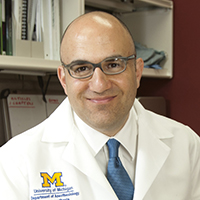
Scientists have begun a search for the cause of a phenomena where people with late-stage Alzheimer’s disease are sometimes very lucid near the end of life. Researchers call it “paradoxical lucidity” and its potential is tantalizing.
“[I]f the brain is able to access some sort of functional network configuration during paradoxical lucidity, even in severe dementia, this suggests a reversible component of the disease,” said George A. Mashour, M.D., Ph.D., one of a group that’s advocating for rigorous analysis of these episodes.
He and his colleagues describe case studies in which individuals with advanced dementia communicate in a seemingly normal fashion, to the astonishment of their caregivers. The lucid period lasts moments, or sometimes days, often fairly near the time of the person’s death. The “Awakenings” phenomena refers to a movie of the same name, based on a real story about catatonic patients becoming lucid.
“If the brain were able to access that normal state, even if it’s transient, it would suggest that there’s some requisite level of machinery that can work under some kind of unique circumstance,” Mashour recently told Scientific American.
Next, the researchers want to figure out how to assess these episodes of lucidity, perhaps by creating tools to analyze speech patterns and behaviors during those times, and by finding ways to support decision-making by caregivers during unexpected lucidity, said Basil Eldadah, M.D., of the National Institute on Aging, in a statement.
“Science is now trying to be thoughtful and attentive to something that has long been reported,” Mashour concluded.
The workgroup’s articles were published in the August issue of Alzheimer’s & Dementia. Scientific American has also published an article about the group’s efforts.




